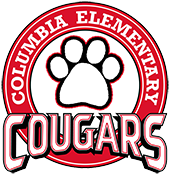Physical Education
The physical education course is designed to give students the knowledge and skills to make responsible physical activity choices throughout their entire life. All six standards become progressively more complex as students move from kindergarten through fifth grade.
The course evaluates students on six state standards:
- Motor skill development
- Anatomical basis of movement
- Fitness planning
- Social development
- Energy balance
- Effort
Motor skill development focuses on demonstrating motor skills needed to perform physical activity.
Anatomical basis of movement focuses on developing basic anatomy, physiology, and musculoskeletal knowledge and vocabulary.
Fitness planning involves teaching students how to use the five components of fitness to develop personal fitness goals. 4th-5th grade students will participate in fitness testing, write SMART goals, and track data to help reach their goal throughout the year.
Social development includes social and emotional learning (SEL) concepts such as safety, etiquette, cooperation, ethics, sportsmanship, accepting differences, and engaging in positive social interaction.
Energy balance teaches students basic nutrition concepts such as macronutrients, vitamins, minerals, and eating a balanced diet.
Effort evaluates how hard the students work towards improving their skills.

